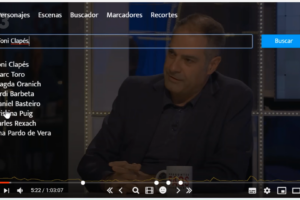
MyGAIT: Smart insoles to improve the quality of life of Parkinson’s patients
February 20, 2025
RevCan: Holistic Valorisation of Hemp Waste to Advance the Circular Economy
March 18, 202503/03/2025
Microalgae-based wastewater treatment systems have demonstrated the ability to recover nutrients from wastewater and produce valuable biomass for agricultural applications while also recovering energy through the anaerobic digestion of residual biomass. In the Cyan2Bio project, in which the Group of Environmental Engineering and Microbiology (GEMMA) of the Universitat Politècnica de Catalunya - BarcelonaTech (UPC) is participating, an additional step will be taken in the valorisation of microalgae biomass to obtain biopolymers suitable for transformation into bioplastics alongside pigments, thereby replacing fossil-based materials.
To achieve this, Cyan2Bio will determine the microbiological and engineering aspects of the microalgae valorisation process and, more specifically, identify the molecular bases underlying microbiological phenomena. Firstly, strains and optimal operating conditions for their growth will be selected, followed by scaling up technologies and processes. A biorefinery concept will also be applied to maximise the social, environmental, and economic sustainability of the entire system. As a result, the Cyan2Bio project will develop a sustainable process for producing bioproducts from cyanobacteria, including biopolymers (PHB) and pigments (phycobiliproteins), as well as biogas from residual biomass after the extraction of valuable compounds.
Specifically, the objectives can be summarised in the following steps:
- Isolating, selecting, and cultivating cyanobacteria strains for biopolymer production.
- Developing a large-scale process for cyanobacteria production and biomass valorisation.
- Assessing the final bioproducts.
- Evaluating the environmental and social impacts of the bioproduct production process.
Impact
The Cyan2Bio project will expand the portfolio of products and services already derived from microalgae and contribute to replacing conventional and less sustainable materials from terrestrial sources. Additionally, the project will support the scalability of the microalgae sector by demonstrating the feasibility of generating green, sustainable, and safe products.
Budget and funding
Cyan2Bio also involves the University of Almería (coordinator) and the Miguel Hernández University of Elche. The project, funded through the State R&D&I Programme of the Spanish Ministry of Science, Innovation and Universities, has a duration of three years (September 2022 – August 2025).
You want to know more?
Related Projects
- The AgroTech research group at the Universitat Politècnica de Catalunya – BarcelonaTech (UPC), together with its spin-off Ugiat Technologies, have driven DoblAI, an AI platform that integrates transcription, translation, subtitling and video dubbing into a single workflow. The solution, which uses deep learning technology and cloned or default voice models, is specifically designed for the journalism and communications sector.
- The AgroTech research group at UPC, in collaboration with its spin-off Ugiat Technologies, has developed uPlayer, a new multimedia player concept that enables more intuitive video navigation and viewing, intelligently enhancing the user experience, especially on YouTube and other platforms, by integrating as a plugin or advanced player.
- The Image and Video Processing Group (GPI), part of the IDEAI-UPC research group, and the Digital Culture and Creative Technologies Research Group (DiCode) from the Image Processing and Multimedia Technology Center (CITM) at the Universitat Politècnica de Catalunya – BarcelonaTech (UPC), have co-organised the AI and Music Festival (S+T+ARTS) together with Sónar+D and Betevé, to explore the creative use of artificial intelligence in music.
- The Visualisation, Virtual Reality and Graphic Interaction Research Group (ViRVIG) at the Universitat Politècnica de Catalunya - BarcelonaTech (UPC) has participated in the XR4ED project, an initiative that connects the educational technology (EdTech) and Extended Reality (XR) sectors, with the aim of transforming learning and training across Europe.










